![]()
"The resurrection of Jesus is not the central datum of Christianity. The central point, from the earliest times, was God's intervention in history, the coming of his rule.”
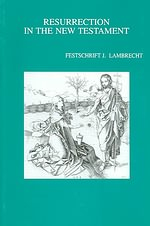
"Between Easter and the Parousia, God's Lordship is exercised through the lordship of Jesus Christ. The universality of God's authority is fittingly evoked by the four-fold"All"; all authority, all nations, all that I have commanded you, all days. The horizon becomes broad. The moment breaks through all boundaries of time and space. The disciples need not fear the storms of history that will break over the church, for the Risen Lord will be present with them, not only now, but always and in all circumstances, until the eschatological completion of the world.”- Resurrection in the New Testament: Festschrift J. Lambrecht
“Although the followers of Jesus who continued his preaching after
his death certainly made Jesus' role a part of that preaching, as we
have outlined, the pattern of their preaching remained the same as it
had been for Jesus: God's rule is coming, and under the rule there
will be salvation for those who have already begun to act accordingly
and to put their trust in God. A new element was added by the idea
that salvation had become possible above all through the death of
Jesus. By this death God had reconciled himself with those who
remained, who had been attached to Jesus and who relied on God for
their salvation. This is in outline the way in which the earliest
Christian preaching developed.
Two things require our attention in this development. Firstly, there
was continuity between what Jesus preached about the coming of God's
rule and the preaching of a number of his followers on the same thing
after his death.
Secondly, just like the preaching of Jesus, the preaching of the
first of his followers to continue his work after his death was
concerned chiefly with God's actions and not with those of Jesus. In
both cases, it was primarily about theology and not Christology.
Following Jesus, the first Christians taught that God was engaged in
bringing about a turning point in history, in fact that he had
definitely intervened in history by sending a final messenger to
announce that turning point. The central point was God's final act of
intervention in the history of the world. That is theology with far
reaching consequences for ethics. Christology, for Jesus and his
disciples, and for those who took up his preaching after his death,
was subsumed into this theology. Originally the idea of Jesus'
resurrection only had a place within the subsumed theology. It is
true that immediately after Jesus' death all those of his followers
who continued his preaching believed in this resurrection as an
expression of their faith that God had acknowledged the truth of his
last prophet. But it was not a central element in the first Christian
theology. It was important above all (a) as an expression of their
trust that God had sanctioned the work of Jesus on earth; and (b) as
a way of making it easier to imagine the role which Jesus still had
to fulfil as judge and saviour in the coming definitive breakthrough
of God's rule.
True, Jesus' followers only continued their theological preaching of
Jesus after his death in a form in which Jesus' unique role as the
messenger sent by God, his death and resurrection were constitutive
elements. They did not revert to the Jewish apocalyptic tradition
without Jesus. What they continued was a theological preaching in
which God was regarded as acting through Jesus' earthly work,
including his death and resurrection. To that extent faith in the
resurrection of Jesus was an integral part of early Christian
theology. And certainly their confidence that Jesus had risen and
been exalted was one of the factors that helped his followers to
continue his theological preaching. Belief in the resurrection and
exaltation of Jesus was a catalyst for the earliest history of the
church; it gave Christians the strength and inspiration to preach and
act. Nevertheless, as Marxsen said, we must stick to the point
that"The resurrection of Jesus is not the central datum of
Christianity.” The central point, from the earliest times, was God's
intervention in history, the coming of his rule...
The conviction that Jesus, on the basis of his resurrection, shares
the authority of God has been taken over by Mt from the early church.
The early Christian christological hymns that are preserved in the NT
already testify to this (cf. Eph 1,20-23; Phil 2,6-11; Col 1,15-20; 1
Pet 3,18-22). Jesus' rising from the dead and his elevation to God's
right hand are two sides of one and the same dynamic event (cf. Rom
1.4; 8,34, and others). The resurrection terminology expresses the
event from its starting point, namely death; the elevation motif
looks at the event from its end point, the word of God. For the early
church, the elevation of the Risen Jesus means that he takes part
fully in God's unlimited power of salvation. That is why he is
called"Lord.”.. In the resurrection event, God not only snatches Jesus
away from the power of death, but moreover He raises him, that is to
say He lets him share in the fullness of His Lordship, in His kingly
authority. That is why the Risen Lord can say: "All authority in
heaven and on earth has been given to me.” His authority knows no
bounds, for it is the power of God Himself. This word of authority
forms the foundation and the presupposition for the following word.
Because Jesus is henceforth"Lord", clothed with God's authority, he
can command a task that knows no boundaries in time and space (v. 19-
20a). Because all power is given to him, the Risen Jesus can promise
support to his disciples until the end of time. No single human being
can command such a world-wide mission nor promise such an all-abiding
support without grossly overestimating itself. Only the divine
authority of the Risen Lord can legitimise and found something like
that.”...
Between Easter and the Parousia, God's Lordship is exercised through
the lordship of Jesus Christ. The universality of God's authority is
fittingly evoked by the four-fold"All"; all authority, all nations,
all that I have commanded you, all days. The horizon becomes broad.
The moment breaks through all boundaries of time and space. The
disciples need not fear the storms of history that will break over
the church, for the Risen Lord will be present with them, not only
now, but always and in all circumstances, until the eschatological
completion of the world.”
Resurrection in the New Testament: Festschrift J. Lambrecht,
Peeters (October 2002), pages 50-142
.jpg)
The Paraclete “We have to resurrect ourselves. There was no need for Jesus to do that. But He was a model: model of a saint, model of a realized soul, model of a person who came all the way from the heavens to save us. So this resurrection is also part and parcel of our lives. It is so symbolic, so very symbolic that we were, in our consciousness, lost people. We had no control over ourselves as to know the way (that) our mind told us to go....We had no balance with the mind and our physical being, no more balance of any kind in life, and (we) used to go at random whichever way we thought was good; there was no wisdom about it.”
The Paraclete Shri Mataji
Easter Puja. Istanbul, Turkey—22 April 2001
Related Articles
The resurrection of Jesus is not the central datum of Christianity
Deepak Chopra: "Jesus belongs to the world. The promise ...”
Crucifixion demonstrates"What dies is mortal body, not living spirit"
Entrance into Kingdom of God which Jesus speaks
The granting of the spirit of holiness is viewed as yet to take place ...
The Second Birth of Man—In Spirit
Eschatological aspect of the kingdom possesses for Jesus ...
Resurrection is accomplished by the wind of heaven
The Resurrection of Christ within You
Jesus rebukes those who seek access to God elsewhere
Jesus proclaimed"salvation through knowledge ... of the divine light"
Jesus presented"salvation .. based upon knowledge of self"
Apokalypsis: The fulfillment of eschatological instruction by the Paraclete in the Age to Come promised by Jesus at the Last Supper
An apocalypse (Greek: apokalypsis meaning “an uncovering”) is in religious contexts knowledge or revelation, a disclosure of something hidden, “a vision of heavenly secrets that can make sense of earthly realities.” (Ehrman 2014, 59)
“An apocalypse (Ancient Greek: apokalypsis ... literally meaning "an uncovering") is a disclosure or revelation of great knowledge. In religious and occult concepts, an apocalypse usually discloses something very important that was hidden or provides what Bart Ehrman has termed, "A vision of heavenly secrets that can make sense of earthly realities". Historically, the term has a heavy religious connotation as commonly seen in the prophetic revelations of eschatology obtained through dreams or spiritual visions.” Wikipedia 2021-01-09
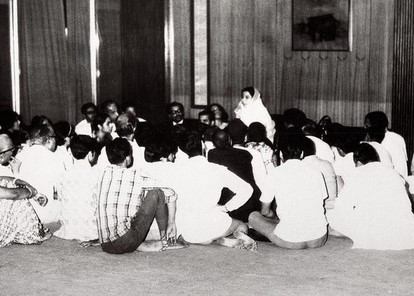
Total number of recorded talks 3058: Public Programs 1178, Pujas 651, and other (private conversations) 1249
“The Paraclete will come (15:26; 16:7, 8, 13) as Jesus has come into the world (5:43; 16:28; 18:37)... The Paraclete will take the things of Christ (the things that are mine, ek tou emou) and declare them (16:14-15). Bishop Fison describes the humility of the Spirit, 'The true Holy Spirit of God does not advertise Herself: She effaces Herself and advertises Jesus.' ...
It is by the outgoing activity of the Spirit that the divine life communicates itself in and to the creation. The Spirit is God-in-relations. The Paraclete is the divine self-expression which will be and abide with you, and be in you (14:16-17). The Spirit's work is described in terms of utterance: teach you, didasko (14:26), remind you, hypomimnesko (14:26), testify, martyro (15:26), prove wrong, elencho (16:8), guide into truth, hodego (16:13), speak, laleo (16:13, twice), declare, anangello (16:13, 14, 15). The johannine terms describe verbal actions which intend a response in others who will receive (lambano), see (theoreo), or know (ginosko) the Spirit. Such speech-terms link the Spirit with the divine Word. The Spirit's initiatives imply God's personal engagement with humanity. The Spirit comes to be with others; the teaching Spirit implies a community of learners; forgetful persons need a prompter to remind them; one testifies expecting heed to be paid; one speaks and declares in order to be heard. The articulate Spirit is the correlative of the listening, Spirit-informed community.
The final Paraclete passage closes with a threefold repetition of the verb she will declare (anangello), 16:13-15. The Spirit will declare the things that are to come (v.13), and she will declare what is Christ's (vv. 14, 15). The things of Christ are a message that must be heralded...
The intention of the Spirit of truth is the restoration of an alienated, deceived humanity... The teaching role of the Paraclete tends to be remembered as a major emphasis of the Farewell Discourses, yet only 14:26 says She will teach you all things. (Teaching is, however, implied when 16:13-15 says that the Spirit will guide you into all truth, and will speak and declare.) Franz Mussner remarks that the word used in 14:26, didaskein, "means literally 'teach, instruct,' but in John it nearly always means to reveal.” (Stevick 2011, 292-7)
The Holy Spirit as feminine: Early Christian testimonies and their interpretation,
Johannes van Oort, Radboud University, Nijmegen, The Netherlands
Department of Church History and Church Polity, Faculty of Theology, University of Pretoria, South Africa
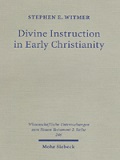
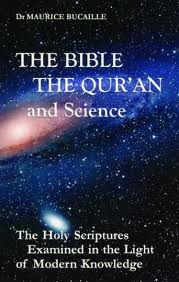
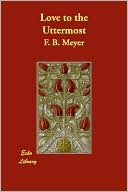
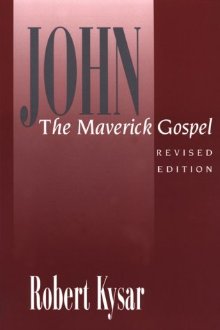
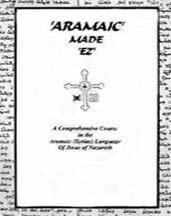

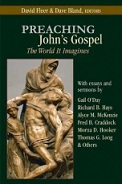
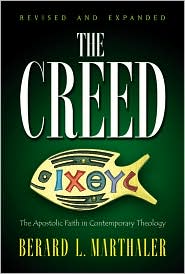
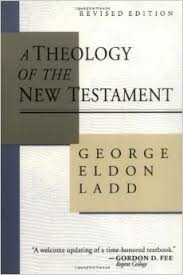
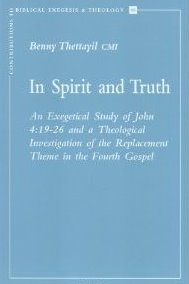

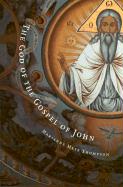
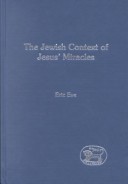
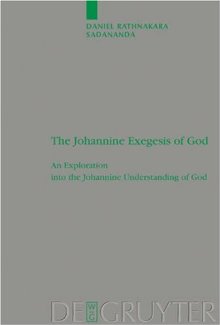

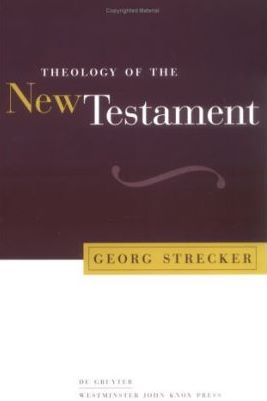

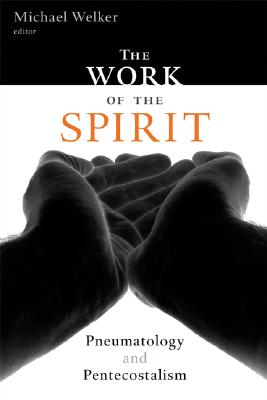
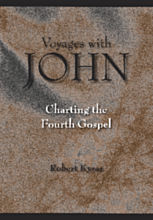
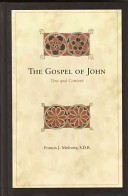
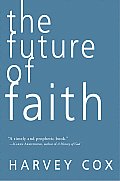
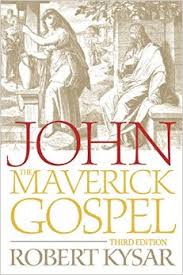
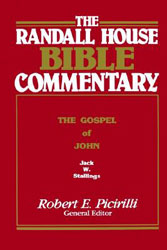
 “The teaching of the Paraclete, as the continuation of Jesus' teaching, must also be understood as the fulfillment of the promise of eschatological divine instruction.”
“The teaching of the Paraclete, as the continuation of Jesus' teaching, must also be understood as the fulfillment of the promise of eschatological divine instruction.”Stephen E. Witmer, Divine instruction in Early Christianity
“Jesus therefore predicts that God will later send a human being to Earth to take up the role defined by John .i.e. to be a prophet who hears God's words and repeats his message to man.”
M. Bucaille, The Bible, the Qur'n, and Science
“And when Jesus foreannounced another Comforter, He must have intended a Person as distinct and helpful as He had been.”
F. B. Meyer, Love to the Utmost
“The Paraclete has a twofold function: to communicate Christ to believers and, to put the world on trial.”
Robert Kysar, John The Meverick Gospel
“But She—the Spirit, the Paraclete...—will teach you everything.”
Danny Mahar, Aramaic Made EZ)
“Grammatical nonsense but evidence of the theological desire to defeminize the Divine.”
Lucy Reid, She Changes Everything
“The functions of the Paraclete spelled out in verses 13-15... are all acts of open and bold speaking in the highest degree.”
David Fleer, Preaching John's Gospel
“The reaction of the world to the Paraclete will be much the same as the world's reaction was to Jesus.”
Berard L. Marthaler, The Creed: The Apostolic Faith in Contemporary Theology
Bultmann calls the “coming of the Redeemer an 'eschatological event,' 'the turning-point of the ages.”
G. Ladd, A Theology of the New Testament
“The Paraclete equated with the Holy Spirit, is the only mediator of the word of the exalted Christ.”
Benny Thettayil, In Spirit and Truth
“The divine Paraclete, and no lessor agency, must show the world how wrong it was about him who was in the right.”
Daniel B. Stevick , Jesus and His Own: A Commentary on John 13-17
Stephen Smalley asserts that “The Spirit-Paraclete ... in John's Gospel is understood as personal, indeed, as a person.”
Marianne Thompson, The God of the Gospel of John
“The Messiah will come and the great age of salvation will dawn (for the pious).”
Eric Eve, The Jewish context of Jesus' Miracles
“The remembrance is to relive and re-enact the Christ event, to bring about new eschatological decision in time and space.”
Daniel Rathnakara Sadananda, The Johannine Exegesis of God
“The Spirit acts in such an international situation as the revealer of 'judgment' on the powers that rule the world.”
Michael Welker, God the Spirit
The Paraclete's “Appearance means that sin, righteousness, and judgment will be revealed.”
Georg Strecker, Theology of the New Testament
“While the Spirit-Paraclete is the true broker, the brokers they rely on are impostors.”
T. G. Brown, Spirit in the writings of John
“The pneumatological activity ... of the Paraclete ... may most helpfully be considered in terms of the salvific working of the hidden Spirit.”
Michael Welker, The work of the Spirit
“The pneuma is the peculiar power by which the word becomes the words of eternal life.”
Robert Kysar, Voyages with John
“The gift of peace, therefore, is intimately associated with the gift of the Spirit-Paraclete.”
Francis J. Moloney, The Gospel of John
“This utopian hope, even when modestly expressed, links Jesus and the prophets to a much wider history of human longing.”
Harvey Cox, The Future of Faith
“Because of the presence of the Paraclete in the life of the believer, the blessings of the end-times—the eschaton—are already present.”
Robert Kysar, John
“They are going, by the Holy Spirit's power, to be part of the greatest miracle of all, bringing men to salvation.”
R. Picirilli, The Randall House Bible Commentary
“The Kingdom of God stands as a comprehensive term for all that the messianic salvation included... is something to be sought here and now (Mt. 6:33) and to be received as children receive a gift (Mk. 10:15 = Lk. 18:16-17).”
G. Ladd, A Theology of the New Testament
Disclaimer: Our material may be copied, printed and distributed by referring to this site. This site also contains copyrighted material the use of which has not always been specifically authorized by the copyright owner. We are making such material available to our readers under the education and research provisions of "fair use" in an effort to advance freedom of inquiry for a better understanding of religious, spiritual and inter-faith issues. The material on this site is distributed without profit. If you wish to use copyrighted material for purposes other than “fair use” you must request permission from the copyright owner.